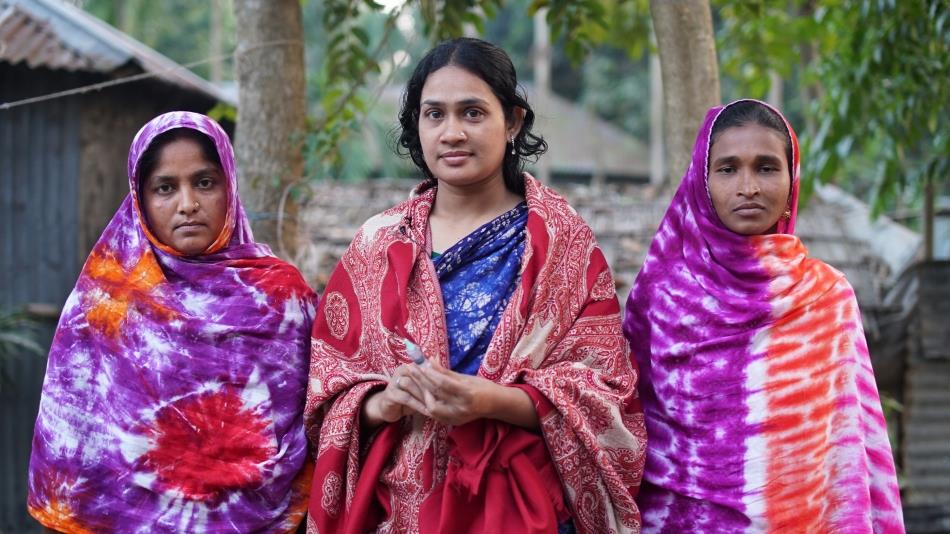Women vaccinators challenge perceptions and change lives in Bangladesh
People have begun referring to Monira and her team as the community poultry doctors. She and the other women vaccinators save money from their work in a joint account, which they intend to use to set up their own commercial farm soon.

©FAO/Jilani
Monira Parveen Mala used to watch her mother cry herself to sleep after losing one of her beloved ducks or chickens to disease. Many other families in her community were also losing their poultry, but no one knew why their chickens were dying or how to prevent it.
For many Bangladeshi women in rural villages, their chickens represent their only opportunity to earn money independently, the money they often use to send their children to school. However, until recently, up to 80 percent of chicks belonging to women like Monira’s mother were dying within 15 days of hatching – a heavy loss considering that the value of an adult chicken is six times that of a chick.
But one day in her village of Tolot South, Monira finally learned the names of the illnesses killing her mother's chickens: Newcastle disease and Fowlpox. And what’s more, she learned how she could help prevent that from happening.
Veterinarian and livestock officer Dr Harun Rashid had recently started going out into the community to conduct participatory disease surveillance after receiving FAO Upazila to Community (U2C) training. This initiative encourages government livestock officers to regularly visit farmers in the sub-district, or ‘Upazila’, they oversee.
